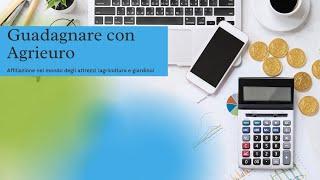Jack Ma, CEO of Chinese e-commerce giant Alibaba.
Jack Ma Yun[a] (Chinese: 马云; pinyin: mǎ yún; born 10 September 1964) is a Chinese business magnate, investor and philanthropist. He is the co-founder and former executive chairman of Alibaba Group, a multinational technology conglomerate. In addition, he co-founded Yunfeng Capital, a private equity firm. Ma is a strong proponent of an open and market-driven economy.
In August 2014, according to the Bloomberg Billionaires Index, Jack Ma had a net worth of US$21.8 billion, making him the richest man in China.[3] In 2017, Ma was ranked second in the annual "World's 50 Greatest Leaders" list by Fortune.[4] He has widely been considered as an informal global ambassador for Chinese business, and is an influential figure for the community of startup businesses.[5] In September 2018, he announced that he would retire from Alibaba and pursue educational work, philanthropy, and environmental causes;[6][7][8][9] the following year, Daniel Zhang succeeded him as executive chairman.[10]
As of October 2021, with a net worth of $42.3 billion, Ma is the fourth-wealthiest person in China (after Zhong Shanshan, Ma Huateng and Zhang Yiming), as well as one of the wealthiest people in the world, ranked 32nd by Bloomberg Billionaires Index.[2] In 2019, Forbes named Ma in its list of "Asia's 2019 Heroes of Philanthropy" for his work supporting underprivileged communities in China, Africa, Australia, and the Middle East.[6][11] In April 2021, Jack Ma ranked 26th in the "2021 Forbes Global Rich List" with a fortune of US$48.4 billion.[12]
Ma has reportedly been seen in public only twice since October 2020, fostering speculation regarding his whereabouts.
Jack Ma was born in Hangzhou, Zhejiang, China. He began studying English at a young age by conversing with English-speakers at Hangzhou International Hotel. For nine years, Ma would ride 27 km (17 miles) on his bicycle to give tourists tours of the area to practice his English. He became pen pals with one of those foreigners, who nicknamed him "Jack" because he found it hard to pronounce his Chinese name.[13]
Later in his youth, Ma struggled attending college. Ma failed the entrance exam for the Hangzhou Teachers College twice as his weak point was mathematics.[14] The Chinese entrance exams, held annually, took Ma three years to pass. Ma attended Hangzhou Teacher's Institute (currently known as Hangzhou Normal University) and graduated in 1988 with a Bachelor of Arts in English.[15][16] While at school, Ma was head of the student council.[17] After graduation, he became a lecturer in English and international trade at Hangzhou Dianzi University. He also claims to have applied ten times to Harvard Business School and got rejected each time.[18]
Ma is a follower of both Buddhism and Taoism.[74][75][76]
At the annual general meeting of shareholders for Alibaba.com in May 2010, Ma announced Alibaba Group would begin in 2010 to earmark 0.3% of annual revenue to environmental protection, particularly on water- and air-quality improvement projects. Of the future of Alibaba, he has said, "our challenge is to help more people to make healthy money, 'sustainable money', money that is not only good for themselves but also good for the society. That's the transformation we are aiming to make."[77]
On 24 September 2014, in an interview with Taobao, Ma attributed the strength of American society to its Christian heritage, and expressed his belief in the importance for China to implement a positive value system, in order to overcome the legacy of the Cultural Revolution.[78]
In November 2018, the People's Daily identified Ma as a member of the Communist Party of China, something which surprised observers.[79][80][81]
Ma received international criticism after he publicly endorsed the Chinese work practice known as the 996 working hour system.[82]
When asked in 2019 to give his views on the future, Ma again stated that 996 was currently a "huge blessing" necessary to achieve success, but went on to state that artificial intelligence technology might lead to a better life of leisure in the future, where people would only have to work four-hour work days, three days a week.[83][84] At the same time, Ma expressed skepticism that AI could ever completely replace people, referencing to his theory that success requires a "love quotient" and stating that machines can never match this success. Ma also predicted that population collapse would become a big problem in the future.
Jack Ma Yun[a] (Chinese: 马云; pinyin: mǎ yún; born 10 September 1964) is a Chinese business magnate, investor and philanthropist. He is the co-founder and former executive chairman of Alibaba Group, a multinational technology conglomerate. In addition, he co-founded Yunfeng Capital, a private equity firm. Ma is a strong proponent of an open and market-driven economy.
In August 2014, according to the Bloomberg Billionaires Index, Jack Ma had a net worth of US$21.8 billion, making him the richest man in China.[3] In 2017, Ma was ranked second in the annual "World's 50 Greatest Leaders" list by Fortune.[4] He has widely been considered as an informal global ambassador for Chinese business, and is an influential figure for the community of startup businesses.[5] In September 2018, he announced that he would retire from Alibaba and pursue educational work, philanthropy, and environmental causes;[6][7][8][9] the following year, Daniel Zhang succeeded him as executive chairman.[10]
As of October 2021, with a net worth of $42.3 billion, Ma is the fourth-wealthiest person in China (after Zhong Shanshan, Ma Huateng and Zhang Yiming), as well as one of the wealthiest people in the world, ranked 32nd by Bloomberg Billionaires Index.[2] In 2019, Forbes named Ma in its list of "Asia's 2019 Heroes of Philanthropy" for his work supporting underprivileged communities in China, Africa, Australia, and the Middle East.[6][11] In April 2021, Jack Ma ranked 26th in the "2021 Forbes Global Rich List" with a fortune of US$48.4 billion.[12]
Ma has reportedly been seen in public only twice since October 2020, fostering speculation regarding his whereabouts.
Jack Ma was born in Hangzhou, Zhejiang, China. He began studying English at a young age by conversing with English-speakers at Hangzhou International Hotel. For nine years, Ma would ride 27 km (17 miles) on his bicycle to give tourists tours of the area to practice his English. He became pen pals with one of those foreigners, who nicknamed him "Jack" because he found it hard to pronounce his Chinese name.[13]
Later in his youth, Ma struggled attending college. Ma failed the entrance exam for the Hangzhou Teachers College twice as his weak point was mathematics.[14] The Chinese entrance exams, held annually, took Ma three years to pass. Ma attended Hangzhou Teacher's Institute (currently known as Hangzhou Normal University) and graduated in 1988 with a Bachelor of Arts in English.[15][16] While at school, Ma was head of the student council.[17] After graduation, he became a lecturer in English and international trade at Hangzhou Dianzi University. He also claims to have applied ten times to Harvard Business School and got rejected each time.[18]
Ma is a follower of both Buddhism and Taoism.[74][75][76]
At the annual general meeting of shareholders for Alibaba.com in May 2010, Ma announced Alibaba Group would begin in 2010 to earmark 0.3% of annual revenue to environmental protection, particularly on water- and air-quality improvement projects. Of the future of Alibaba, he has said, "our challenge is to help more people to make healthy money, 'sustainable money', money that is not only good for themselves but also good for the society. That's the transformation we are aiming to make."[77]
On 24 September 2014, in an interview with Taobao, Ma attributed the strength of American society to its Christian heritage, and expressed his belief in the importance for China to implement a positive value system, in order to overcome the legacy of the Cultural Revolution.[78]
In November 2018, the People's Daily identified Ma as a member of the Communist Party of China, something which surprised observers.[79][80][81]
Ma received international criticism after he publicly endorsed the Chinese work practice known as the 996 working hour system.[82]
When asked in 2019 to give his views on the future, Ma again stated that 996 was currently a "huge blessing" necessary to achieve success, but went on to state that artificial intelligence technology might lead to a better life of leisure in the future, where people would only have to work four-hour work days, three days a week.[83][84] At the same time, Ma expressed skepticism that AI could ever completely replace people, referencing to his theory that success requires a "love quotient" and stating that machines can never match this success. Ma also predicted that population collapse would become a big problem in the future.
- Catégories
- E commerce Divers














Commentaires